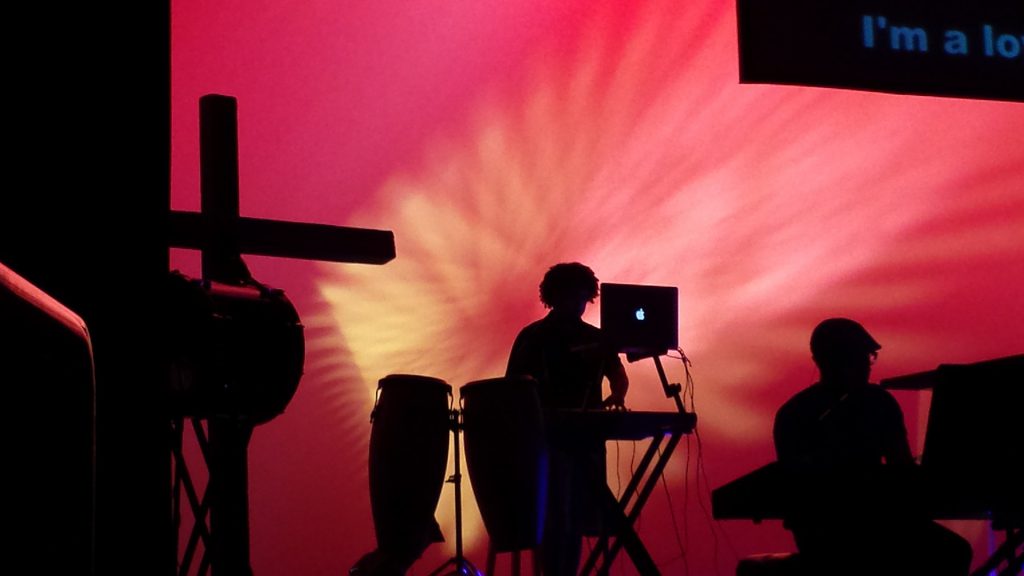Last week, I was telling a person from another church in town about one of King Street Church’s fresh expressions, where the word of God is read and proclaimed in the context of loving, Christian community.
She responded, “So it’s a bible study?”
“No, it’s a church,” I replied.
“Then where is the worship?”
What she meant was, “Where is the music?”
A Limited Definition of Worship
Since the explosion of the “praise and worship” movement of the 1990’s, the language of worship has become increasingly synonymous with music. Yet this was not always the case.
Justin Martyr described worship in the early church c. 150 AD,
And on the day called Sunday, all who live in cities or in the country gather together to one place, and the memoirs of the apostles or the writings of the prophets are read, as long as time permits; then, when the reader has ceased, the president verbally instructs, and exhorts to the imitation of these good things. Then we all rise together and pray, and, as we before said, when our prayer is ended, bread and wine and water are brought, and the president in like manner offers prayers and thanksgivings, according to his ability, and the people assent, saying Amen; and there is a distribution to each, and a participation of that over which thanks have been given, and to those who are absent a portion is sent by the deacons.
Instrumental music was not a part of Christian worship for the first thousand years of the Church. In fact, the Early Church Fathers had a deep mistrust of instrumental music, fearing that entertainment would overshadow the true nature of worship.
A Deeper Vision of Worship
The danger of fusing the language of worship and music is that it creates a limited understanding of the rich vision of Christian worship while stifling our missional potential.
Simply put, true worship ascribes worth to God. No melody required.
True worship ascribes worth to God. No melody required. @lukesedwards
Tweet this.
According to the renowned theologian N.T. Wright, “Christian worship…is about telling and re-enacting the story of what God has done, what God is doing, and what God will do—like the great psalms and songs of the Old Testament. It celebrates God’s mighty deeds, and in so doing, helps forward the next stage of the redeeming purpose.”
Every moment of a church gathering, from prayer, to the reading of God’s word, to proclamation, to participating in holy communion, is worship.
Music undoubtedly has a great potential to be a means of worship, but by no means does it have a superior place among the rest of the order of worship.
Worship and Fresh Expressions
This point is essential to the formation of fresh expressions of church. In the process of forming fresh expressions, pioneers must create worship opportunities that relate to the contexts they are in, something we call missional worship.
In a church like mine composed of folks across the spectrum of Christian faith, music is tough. It’s awkward to sing to a God you barely know. It’s like singing a love song to someone on your first date.
In Tim Lomax’s excellent overview of missional worship, the priest and songwriter argues, “If we are to remain faithful to the core of the Christian faith, then we must continue along the lines of God’s incarnation in Christ by being contextual in the way we worship and build Christian community.”
Christian worship can be incarnational and remain faithful, but we must be willing to let go of our worship preferences to see worship emerge in new contexts among new believers.
Missional worship has been taking shape in various forms in the Fresh Expressions movement. Dinner churches, messy church, and the Amore gatherings are just a few examples of missional worship happening here in the States.
Conclusion
When we declare a church with no music as no church, we’ve clung to human-made norms over the deeper vision of worship.
When we declare a church with no music as no church, we’ve clung to human-made norms
Tweet this.
Christian worship has always been contextual and will always be contextual. We need not be afraid of a context that is not yet ready for music. Worship is far more than a chord progression.


